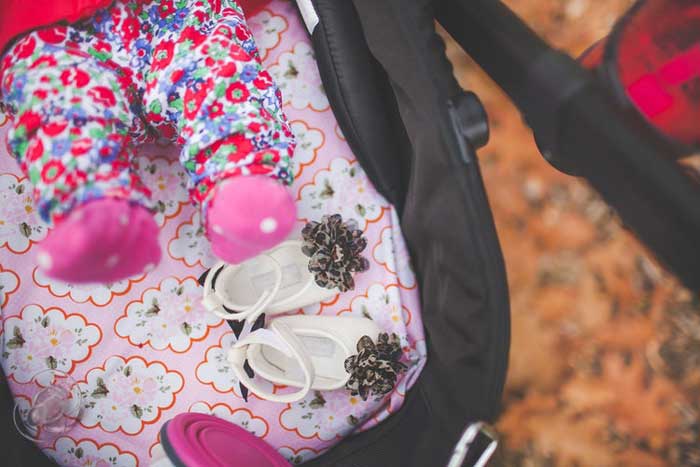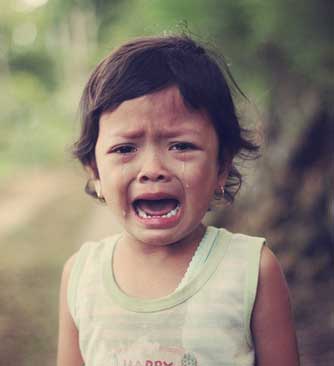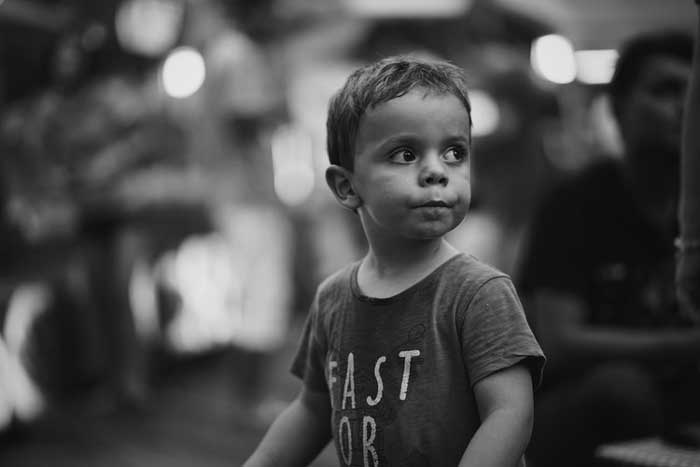Reasons Not to Travel with a Baby
Of course, traveling is one of the most attractive types of recreation, and it is also difficult to overestimate its importance in expanding the people’s worldview. All the difficulties that inevitably arise during traveling unite the family and only pleasant moments remain in memory… But is the trip always worth it?
 Traveling is a new religion now. To travel with a baby is a fashion trend. Stylish mums from Instagram try to impress each other with the photos of their babies in the most inaccessible places. Everything is done for the sake of the coveted likes. Most people envy them. And only some people think about how frequent flights, long hours in the car seat and visiting noisy tourist places can affect the health and development of a baby.
Traveling is a new religion now. To travel with a baby is a fashion trend. Stylish mums from Instagram try to impress each other with the photos of their babies in the most inaccessible places. Everything is done for the sake of the coveted likes. Most people envy them. And only some people think about how frequent flights, long hours in the car seat and visiting noisy tourist places can affect the health and development of a baby.
So what should you remember before going on a trip with the baby? Below you will find 6 main dangers that can undermine the health of a baby on a journey — these are 6 reasons why long trips should be postponed.
1. Abundance of contacts
One of the main “minuses” is the abundance of contacts with complete strangers. Parents force the body with an immature immune system to enter the high-risk zone.
Even if the mother feeds the baby for several hours during the flight, sharing her immunity, even if the child has received all the necessary preventive vaccinations, in a confined space there is always the threat of meeting with viruses or bacteria (especially if these viruses or bacteria are “exotic”) against which the immunity “fails to work”.
2. Intracranial pressure during takeoff
It is necessary to take into account the loads experienced by the body during takeoff and landing of the aircraft. Self-respecting air carriers will ask a pregnant woman to show a doctor’s certificate permitting her flight. Unfortunately, they will not ask for a document permitting the baby’s presence onboard. Even minimal intracranial hypertension in a child can cause severe headaches in case of the increased atmospheric load. Isn’t it the reason why we often hear babies sob during flight?
3. No time to adapt
From a pediatrician’s point of view, the so-called long-distance “weekend trips” are unacceptable. Parents often forget about the adaptation period, especially if the time zone is changing! In case of a short-term trip – about 5-7 days – the organism does not get enough time to adapt to the new conditions. And then it is forced to leave for another place again.
Even if it is a very ecologically clean place, such trips are pointless.
4. An attack of the nervous system
The abundance of sound, visual and emotional impressions must be mentioned separately. We must not forget that children are small and more vulnerable copies of ourselves. Everything that impresses, pleases, disappoints, scares and cheers us (trips are rich in such situations) can cause a hypertrophied reaction in a kid. This can lead to a nervous breakdown and chronic nervous disorders.
Of course, positive emotions are great, but some parents continue to go to very noisy, crowded, “rave” places where the music is loud, where vanity and chaos reign. It is dangerous for the immature nervous system.
5. Car seats are harmful
Do not forget that a long stay in car seats and specialized chairs is not useful for developing the musculoskeletal system of a little kid, especially of a 1-year-old toddler. They are intended for short-term transportation and carrying rather than for a long “stay” in a semi-sitting position. The baby can stay in this position for two or three hours while sleeping, but then you need to hold the baby in your hands and allow the bloodstream to recover.
6. A tablet during traveling
It is unacceptable to watch cartoons in a vehicle; this may negatively affect visual acuity and lead to strabismus.
But not everything is so negative when traveling with babies. What can be advised in such cases? What should you be warned about?
Of course, first of all, you need to get the permission of a pediatrician. Taking into account the health condition and the child’s features, you can discuss all the available options. This suggests a formula: the farther the trip, the longer it lasts.
If it is possible to avoid air travel with its inevitable contacts and pressure drops during takeoff and landing, “horizontal” trips are preferable. Moreover, traveling by car, there will be an opportunity to stop at any time and change the position of the baby’s body.
It is very good if the kid is traveling as far as possible in the open air and does not stay for a long time in stuffy rooms.
It is strictly forbidden to be in the open sun from 11 a.m. to 3 p.m., and in some regions from 10 a.m. to 4 p.m. To protect against the negative effects of sunbathing, there are such products as creams with high SPF or clothing with UV protection. It is important to remember that the sun rays will do more good if they are scattered rather than direct.
Choose a quiet place for rest and joint pastime so that the baby falls asleep to the sound of the tide and the rustle of leaves. Develop a route where you can visit zoos and botanical gardens to acquaint your child with the surrounding world and postpone visiting bars and restaurants until the child is older.
It is also important to remember that in order to minimize the risk of stress development in a baby, it is necessary to try to keep the same diet and daily routine. It is risky to introduce new products (especially highly allergenic) on the travel menu.
Long separation from civilization while traveling with small children is not recommended (hiking, forest, other hard-to-reach places) because when the situations that threaten the health and life of the child arise, parents cannot provide emergency medical care in a timely and efficient manner.
Insect and snake bites, acute injuries and bleeding, sudden severe allergic reactions and swelling of the respiratory tract can have irreversible effects. During any trip, you must have medical insurance for the child and a constant opportunity to consult with doctors as fast as possible to provide the necessary assistance. Be sure to get a first aid kit. What it should contain, the pediatrician will tell you.
Of course, joint trips bring parents and children very close together, and this is a major plus in traveling with the whole family. The parents’ task is to always remember that the health, well-being and harmonious development of the baby are largely dependent on the adults’ decisions and actions. Therefore, you must try to find the “common ground” so that your joint traveling can only strengthen the immunity and health of the whole family and expand the children’s and parents’ horizons. Let pleasant memories of a joint rest delight you and your children for a very long time.



